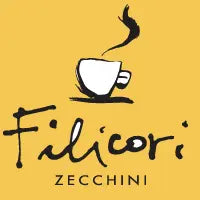We have already spoken to you about Latte Art, the technique for decorating cappuccino and espresso macchiato by pouring the foamed milk, also called “free pour”, where only the milk jug is used to create designs on the surface of the espresso or cappuccino.
A discipline that more and more baristas are becoming interested in so they can impress their customers with the drinks they’ve prepared both in terms of aesthetics and taste.
To be able to do this with precision and dexterity requires training; in fact specialist training is important for creating a solid foundation of skills on which to work constantly and with great dedication so as to get the maximum results.
Like Matteo Beluffi who, in 2017, won the title of Italian Latte Art Champion at the SIGEP event in Rimini (exhibition of Ice cream-making, pastry baking, bread crafts and coffee) .
We interviewed him to find out how he got involved in this specialization and the importance of training and competitions in the professional growth of a Latte Art expert.
Matteo, can you tell us about your first time behind a coffee shop counter?
I remember my first time behind a coffee shop counter very well!
At the time I was only18 years old and I was behind the counter of my ice-cream parlor, coffee-shop, bakery.
I remember I was still in my last year at high school in Milan, and at that age I was extremely shy and introvert.
When and why did you choose to specialize in a skill like Latte Art?
I started eight ears ago, when I was Food&Beverage manager of the catering for La Cimbali and I met the Italian champion Mariano Semino during the Host 2011 fair in Milan.
That was the very first time I really came into contact with this discipline, learning the basic technical abilities: Mariano, with a very logical and scientific approach, taught me how to foam milk during that fair.
In the years after that, thanks to him, I decided to continue down that road, and I started – at 9Bar – my SCA training in coffee, espresso and cappuccino, gaining the fundamental skills to work in this industry.
When did you start competing?
I started competing two years later, in 2013, after being spurred on and convinced by Mariano himself and by Emilio Repetti, another champion and also great friend.
They both believed in me right from the start, helping me to prepare for my first national competition at the SIGEP event in Rimini.
That year, having got through that round, I took part in the national final of the SCA circuit, the Latte Art Italian Championship and, against all my expectations, I came third, which was an exceptional result for me.
In 2017 you won the Latte Art Italian Championship and, in the same year, you won sixth place in the World Final of the Latte Art World Championship in Budapest: how important are competitions for professional growth?
They are very important: they provide the possibility to grow on a personal and professional level from various different points of view.
For me, for example, the competitions really helped me to believe in myself more, to set myself goals and understand that I could reach them on my own.
From a professional point of view they force you train a lot and find ingenious solutions so you can be faster, and more precise and clean, so you can serve the best cup of coffee in the shortest time, whether it be an espresso, a cappuccino or a filter coffee.
All notions which you can acquire and which help you to perfect your daily routine to offer the best quality service to the customer.
Competitions, in any field of work, raise the critical issues in your work, allowing you to resolve them and improve service in terms of quality and time.
Just how important is training and updating once you have a reached as high a level as yours?
My motto is “knowledge is power”.
As far as I’m concerned, training is essential in every area of work, especially when you become a role model, capable of influencing other people.
Reaching world class levels, is undoubtedly, an honor, but it is also above all a huge responsibility: you become an example for those who want to grow in a particular field, and this is why it is always important to show skill and professionalism.
This is why I say: always keep training even when you think you already know everything, because that’s when you realize that you don’t really know anything yet.
You are a technical judge on the jury for the competition “One hundred years of Filicori Zecchini Quality”, a competition created to celebrate the one hundred year anniversary of the Bolognese company which sees its own clients compete against each other; what does it feel like to be a judge rather than a contestant?
Being a judge is a different type of emotion; it certainly carries a lot of responsibility.
I hadn’t imagined, but in some ways it’s actually harder than being a competitor, especially because you can’t allow yourself to be influenced by the situation and the contestants themselves, because you have a responsibility towards them and your judgement must be impartial.
This may seem easy, but it’s not.
As far as spreading the knowledge needed to develop greater professionalism is concerned, there is undoubtedly still a lot of ground cover and knowledge to impart, starting with the new generations, our future.
We should start talking less and publicizing more.
Thanks to training courses and competitions, the profession of barista is becoming less improvised.
Do you believe that all the media hype surrounding this topic will have a positive effect on the quality of the service provided to the customers?
Definitely, there will be a positive impact when the baristas themselves, bar owners and clients/coffee lovers start to understand that the barista is a chef who roasts coffee every day and that there are many ways of interpreting that toasting and, consequently, the extraction.
The attitude that people have towards the role of the barista in making coffee needs to evolve: his/her skills and abilities are in fact, fundamental in delighting the customer with a top quality product of exceptional quality.
The fact that a skill like Latte Art is becoming more and more widespread suggests that the work of the coffee shop will open up to new levels of professionalism.
What do you think the future has in store for us? Are there other interesting disciplines emerging?
Latte Art certainly helps and will always help to bring the customer closer to the world of coffee and its thousands of nuances.
With regard to which direction coffee shops will move in the coming years, I think that – from looking at the latest market research – the future is and will be increasingly non-dairy.
These days, in place of your traditional milk, there are many alternative drinks for people who, like me, are lactose intolerant and with which it is possible to do Latte Art.
And I believe this is the type of product that we will be trending towards and using more and more, especially varieties like oat milk which work better with coffee.
 Europe
Europe



